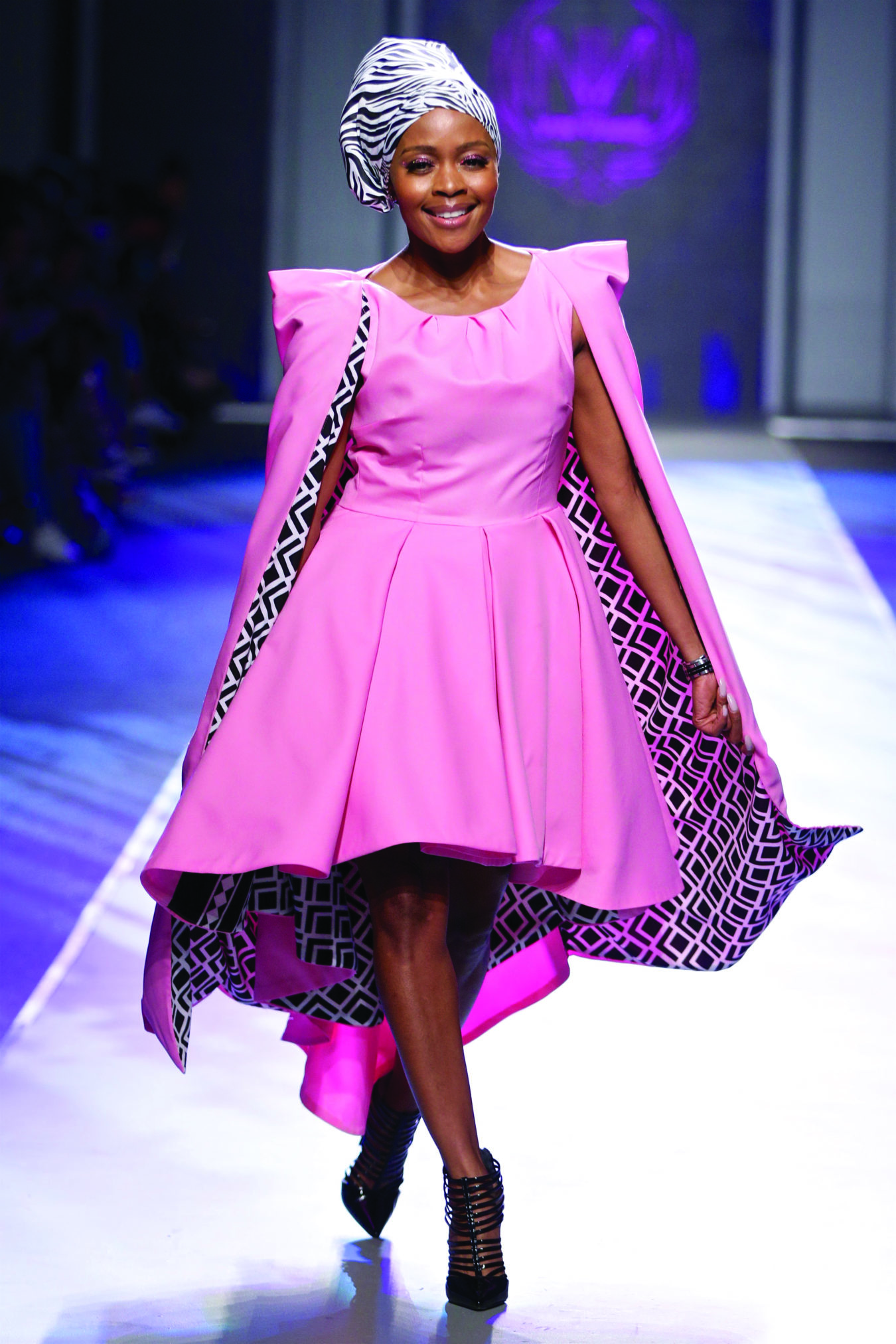You may accuse Nhlanhla Nciza of having it all – friends, family and fame. Now, also add a booming business to the list.
Nciza, one half of Mafikizolo, a duo that has kept the world dancing to an authentic African sound for over 10 years now, is taking the fashion industry by storm, with her brand, NN Vintage, inspired by fashion from the 1940s to 1980s.
When we meet her, at her showroom in Northriding, a 20-minute drive from Sandton, Africa’s richest square mile, she is on cloud nine. She had just showcased her latest collection at the Mercedes-Benz Fashion Week in Johannesburg. She impressed Africa, and is now flooded by orders.
“We have had such overwhelming response and I am pleased we are where we are,” says Nciza.
It didn’t come easy. When interviewed for a FORBES WOMAN AFRICA cover for women’s month in August almost three years ago, Nciza had lost about R600,000 ($41,000) in the business. NN Vintage was struggling.
Loading...
“When I first started, I wanted to impress people. I would do clothes that I wouldn’t wear, designs that weren’t practical and I forgot the reason I got into this business in the first place,” she says.
It didn’t work. It was time for change.
“I remembered people were in love with the way I dressed. In 2014, I re-launched the company and the first thing I did was to do clothes people can wear to the office, can wear to functions and weddings and most importantly, things I would wear,” she says.
Staying true to herself meant celebrating Africa. This resuscitated the business.
“Because of the internet, the world is becoming smaller. People are falling in love with Africa again and rediscovering who we truly are and embracing that. Some people have explored everything else, Chinese culture, Spanish, European cultures and now it’s time for Africa. It is time for us to shine and be proud of it.”
She traveled the continent looking for fabric, and rediscovering it.

“If people embrace themselves, they become successful. The Jamaican music sound took over in America because they embraced their authenticity. Instead of them copying America, America came to them and that’s what we should all strive for,” says Nciza.
Celebrities like Thembi Seete, Jessica Nkosi and Uyanda Mbuli have rocked Nciza’s designs. This makes it possible for NN Vintage to employ eight people.
Despite the success, there is still a bit of struggle. She says there isn’t enough support from locals and it’s hard to source African print as most of it is made in China.
“People see something foreign as better than what we produce in Africa which is far from the truth. We need to change mind-sets so our people can support us as much as they support foreign brands. They shouldn’t ask why a Dolce&Gabbana is the same price as an NN Vintage or David Tlale.”
Fashion is not the only place Nciza wants to dominate. She has also launched Home Based Records, a record label that has been her dream for years.
“Since I started music, I have always wanted to be one of the first women to own a record label. When I started my career, there were no women record label owners and I wanted it to be a message to young women that you can do anything you want, there is nothing meant for men alone.”
Worlds from her music genre, Nciza’s first artist signed to the label is M Thulz, a commercial hip hop up-and-coming star who recently released Emigodini, a single making the rounds on radio stations.
“Even though Mafikizolo was signed by a big record label, it took us four albums to break well into the market. I know everything takes time. I don’t think just because I am Nhlanhla from Mafikizolo everything will just come easy,” she says.
Hundreds of South Africans are already in-boxing her, asking to sign up with her label.
“It breaks my heart because I know what it feels like to be passionate about something and it doesn’t happen. I know what that does to a person. I don’t just turn them away but I advise them to keep going.”
Home Based Records employs four people and is looking to grow. But Nciza isn’t stopping there either. She is launching an accessories collection in 2017; Mafikizolo is releasing an album and recording its first live DVD.
It’s hard to balance it all. She has had to miss out on important things like her child’s first step while touring in Uganda.
With Mafikizolo Entertainment, which employs 13 people, they have made some tough decisions.
“We have decided not to say yes to everything so that we can be with our family. Mostly in January and February we don’t take bookings unless it’s something really important. I take strength in knowing I am not the first woman to go through this, many have worked and raised children and so can I,” says Nciza.
Nciza is determined to keep going. As we leave, she shows us framed FORBES WOMAN AFRICA covers hanging on her boardroom wall.
“I was the first in South Africa in the entertainment side to be on the cover of the magazine and that’s big. It’s one of the biggest highlights in my life next to meeting and performing for Nelson Mandela. Who would have thought that a girl like me from Kagiso and from the farms of North West can be on the cover of such a magazine?” she says, as we leave her preparing for yet another meeting.
Friends. Family. Fame. FORBES WOMAN AFRICA. It’s an enviable list indeed.
Loading...
